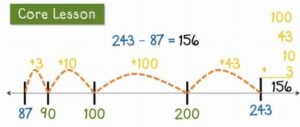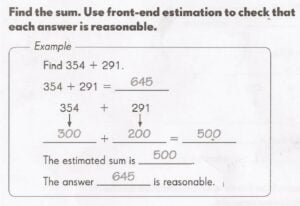As a parent, you always worry if you’re doing enough for your child to help them succeed. You may ask yourself: Are the books I get for them stimulating their mind, or are they not engaging? Am I focusing enough on their interests to spark creativity and drive them to excel? Am I giving them the proper education to propel them into their best possible future? These are just some of the questions parents can grapple with on a daily basis.
In the past, as your child matured and started their public schooling, you could share these concerns with their teachers and be secure in knowing that your child’s needs were being met. But with the introduction of the federally regulated Common Core State Standards (CCSS) in 2010, educators are now too focused on “teaching to the test” rather than their students’ individual needs and interests.
However, in four short years school officials and parents alike have voiced their displeasure with the federal standards. Of the 44 states that originally adopted the initiative, nearly half recently repealed. And in states like Pennsylvania, Georgia, North Carolina, Oklahoma, and Alabama, parents are abandoning the public school systems in favor of a flexible homeschool curriculum. In fact, the number of children who homeschool in the United States has more than doubled since 1999 — the first time it was measured — to 1.8 million. In North Carolina alone there has been a 14% increase in homeschooling since the CCSS were adopted.
But for parents that aren’t convinced homeschooling is the best choice for their family, a public education is still very much on the table. What can your child expect under a Common Core education? High costs, lack of critical thinking skills, and difficult question formats that don’t help our children find their passions and succeed at learning.
Get Your Checkbooks Ready
Under the Common Core, parents can expect to pay an average of about $10,000 per child per year for public education. Much of the costs include CCSS aligned textbooks, teacher training, technology upgrades, and assessments.
In addition, your children taught under Common Core regulations are subjected to federally structured lesson plans that reflect heavily on math and language arts, but avoid subjects like computer science and literary studies. In most states entire books have been removed from lesson plans leaving only partial sections for our students to read. Also, to keep up with the regulated curriculum, school districts are being forced to squeeze their already shrinking budgets and eliminate many classes that students enjoy most, like art and music.
Most parents of this generation grew up treating all subjects with equal importance. And, though we’ve seen a decrease in emphasis on the arts in recent years, we can expect our students to experience even less creativity and expression. How can parents expect their children to get the same education as they did without the benefits of those lost subjects? Without art and music the curriculum is dull, unengaging, and doesn’t allow students a break from “teaching to the test.”
What Did You Learn In School Today? The Test
The CCSS have put a huge emphasis on testing and student/teacher performance, which are then tied directly to school funding and teacher salary. So if a school wants to incorporate a new science or music class, or if a teacher wants to ever become tenured, they’ll be forced to spend the majority of their curriculum “teaching to the test.”
Meanwhile, as school districts try to fit the new standards and the many financial requirements they place upon districts into their budgets, many are choosing to forgo fun, educational field trips and activities for their students. They simply don’t have the personnel or funding to support it.
One major damaging effect of Common Core is that it takes away from teacher initiative, reducing the amount of individual attention a teacher can offer each child and care that a teacher can take with an individual child’s strengths and weaknesses. As a result, many students struggle to engage in school, and view school as a chore instead of being excited about learning. Finding and nurturing a child’s passion is becoming less and less important in public education. Education should allow children to realize their true potential, which is why many homeschooling parents cite their dissatisfaction with their current school system as the main reason why they decided to homeschool.
Who Knew Math Had “Number Bonds”?
One of the biggest complaints about CCSS among parents is that the lesson plans are forcing students to do more work than is required for simple math problems. Students, teachers, and parents alike find themselves confused by the new standards that were originally created in an effort to make math simpler for a broader audience. Abandoning traditional methods, the questions now ask students to draw number lines, learn “front-end estimation,” and create number bonds. If that left you scratching your head, you’re not alone. Overall, Common Core questions, problems, and lesson plans use strange, confusing, and often unnecessary language in an effort to create “number sense.”
Just take a look at these CCSS math problems. Could you help your child if this was their homework?
Another major concern for parents is Common Core standards causing them to lose control over the fate of their child’s education. Common Core was often adopted with little to no input of parents or teachers. And implementation has been a mess with little to no communication, parents unable to help their own children, and test scores plummeting in states that normally do very well. With so much attention being put on a state-wide curriculum, parents feel their voices aren’t properly being heard.
The Common Core standards are training students to acquire the necessary skills to function in a technical workplace, focusing on production, test scores and competition. But, they’re missing the point. Teaching and learning is not about preparing our children for what the standards want them to be. The true meaning of education must go beyond mastering the three R’s to helping students find their passion so that they can succeed beyond the classroom.
If your student is currently learning under Common Core and you’re considering a change, stay tuned for our next blog post in this series, “What You Can Expect For Your Child Under Homeschooling.” We will help you understand the benefits of homeschooling (as well as bust a few of its most common myths), it’s spread across the United States, and how it helps families succeed.










